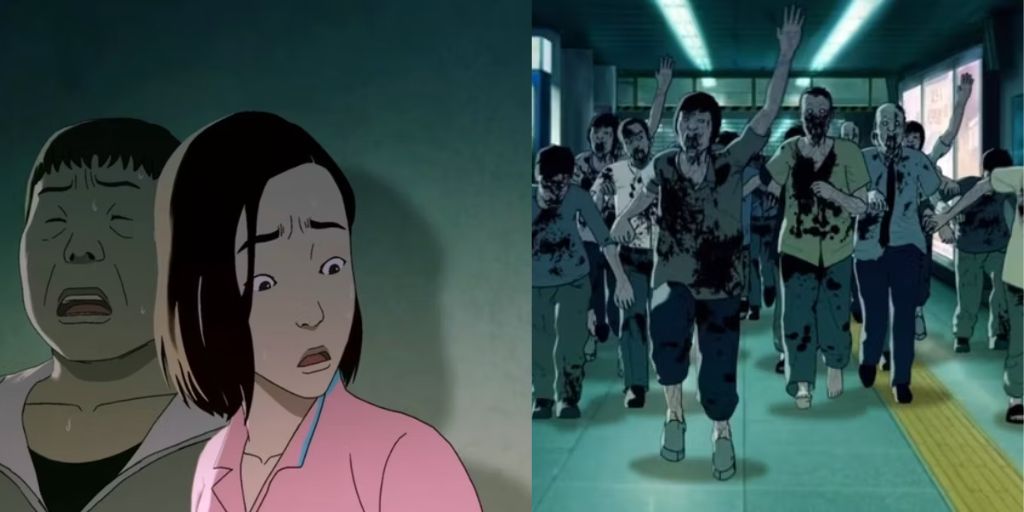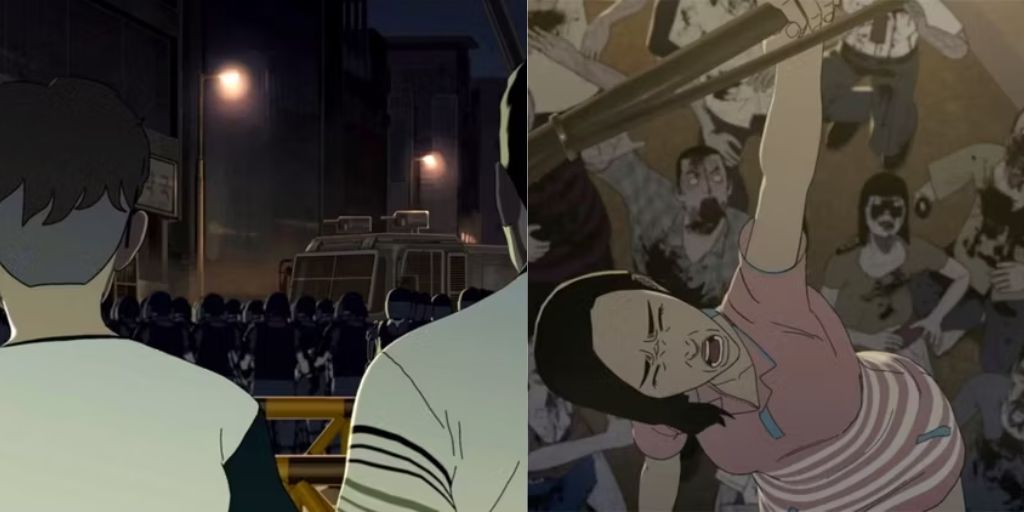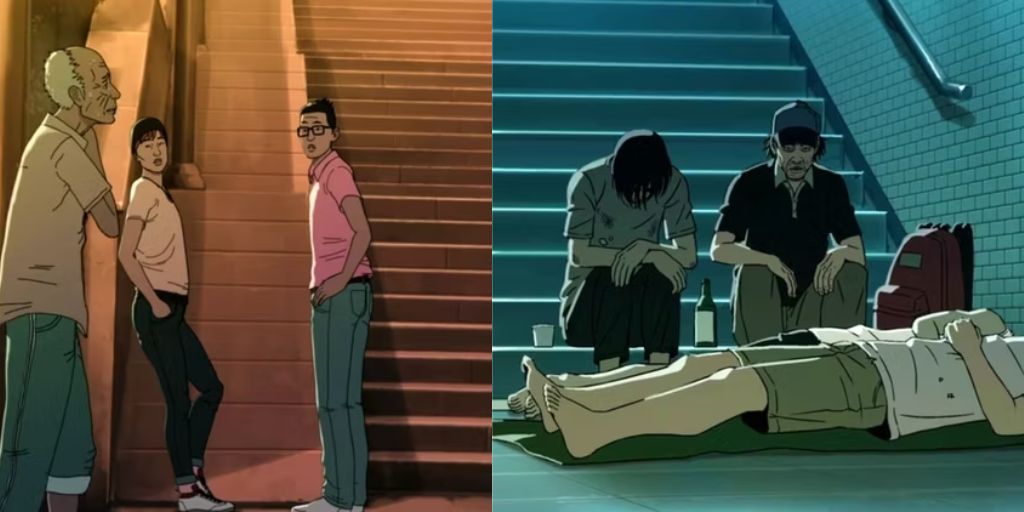“Train to Busan” was a huge hit in 2016 and became one of the best zombie movies in years. Director Yeon Sang-ho knew he had something special as soon as the movie came out. Just one month after “Train to Busan” premiered in South Korean theaters, Sang-ho released “Seoul Station,” an animated prequel showing how Seoul was first taken over by zombies.
The story follows Hye-Sun (Shim Eun-kyung), a former sex worker already struggling before being separated from her boyfriend, Ki-woong (Lee Joon). Together with Hye-sun’s father (Ryu Seung-ryong), they fight through the infected city to find each other.
“Seoul Station” is not just one of the few animated horror films but also offers a broad look at South Korean society. It does not repeat the themes from “Train to Busan” but instead explores a wider range of social issues while creating relatable and caring characters.
“Train to Busan” was known for addressing social issues like burnout and class differences, and for showing humanistic themes like sacrifice. These ideas were shown through a small, well-developed group of characters. “Seoul Station” maintains this strong writing but does not repeat its predecessor’s focus.
Instead, it looks at a larger part of Seoul and South Korea. The first zombie attack does not happen until almost 20 minutes into the film. Until then, we see how dismissive city and government officials are towards those in need, especially the homeless.
Hye-sun, the main character, does not learn about the zombie outbreak until five minutes after the first attack. The movie first shows her dealing with being a former sex worker, having no money, and being with a boyfriend who wants to act as her pimp.
By focusing on these real-world issues, the movie shows that the government failed its citizens long before the zombie outbreak.
“Seoul Station’s” Main Characters Are on the Bottom Rung of the Ladder
The social commentary in “Seoul Station” focuses on homelessness and prostitution. Hye-sun, the main character, is a former sex worker who escaped from her brothel. She tries to build a stable life with her boyfriend, Ki-woong, but they are about to be evicted. Worse, Ki-woong tries to act as her pimp without her consent.

Hye-sun wants to avoid sex work, but people around her still look down on her. Even Ki-woong justifies his actions by making her feel guilty and blaming her for their situation. The audience sympathizes with Hye-sun’s unfair situation.
However, “Seoul Station” goes deeper by showing that Hye-sun herself believes in class differences. When the police refuse to help her and the homeless people she is with, Hye-sun begs them to help her because she is “not a homeless.”
She implies that, even as a sex worker, she is more deserving of help than a homeless person. But since she is on the verge of eviction herself and struggles with being looked down upon, it seems hypocritical for her to do the same to others.
It is even worse because this group of homeless people warned her about the zombies and let her escape with them. Referring to a homeless person as “a homeless” reduces them to part of a collective problem rather than seeing them as an individual.
Hye-sun is sympathetic, though the above conversation is a brief and subtle moment. Other characters show clear class conflicts. When the military blocks civilians from escaping zombies, one man loudly complains about the injustice. He feels he deserves to escape because he served his country and is different from the “trash” around him.
He does not know these people, and being “different” did not keep him from being stuck in the same situation. Still, he maintains his sense of superiority. When he cannot escape due to the military blockade, he blames those around him for his situation, not the government blocking the area.
While “Seoul Station” does not blame the outbreak on the government, it shows them caring more about maintaining order than about citizens’ safety. The government also takes no responsibility for their actions, claiming that the trapped people are “participating in an unlawful assembly,” ignoring the zombies attacking them.
Since “Seoul Station” is a prequel, it is expected that none of its characters will survive. By the time “Train to Busan” begins, Seoul is nearly overrun by zombies.
The lack of hope, compared to the bittersweet ending of “Train to Busan,” and the heavy social commentary make “Seoul Station” a dark watch. However, its insightful themes and realistic characters add valuable depth to director Yeon Sang-ho’s cinematic universe.
“Seoul Station’s” Ending Is Way Darker Than “Train to Busan’s”
While “Train to Busan” ends with bittersweet hope, “Seoul Station” focuses on the darker side of Hye-sun’s situation. After spending the movie hoping Hye-sun will reunite with her father and boyfriend, the ending reveals that Suk-gyu is not her father but her former abusive pimp seeking revenge for being stolen from. He murders Ki-woong and tries to rape Hye-sun.

This shocking twist leaves the audience on edge, wondering how Hye-sun could escape. Sadly, she does not survive. During the attempted assault, Hye-sun dies from an infected zombie scratch on her foot.
As Suk-gyu tries to revive her, she suddenly becomes a zombie and violently tears him apart. Although it is tragic that Hye-sun does not survive, she gets revenge on her abusive pimp as a zombie.
“Seoul Station” is available to watch on Prime Video in the U.S.





